50+ Sample Coaching Agreements
-
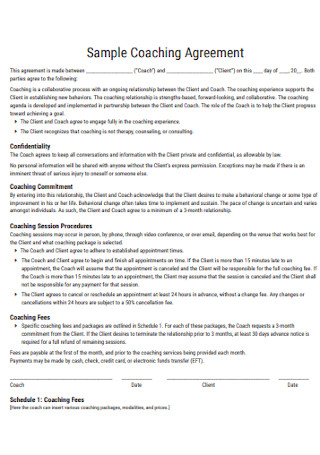
Sample Coaching Agreement
download now -
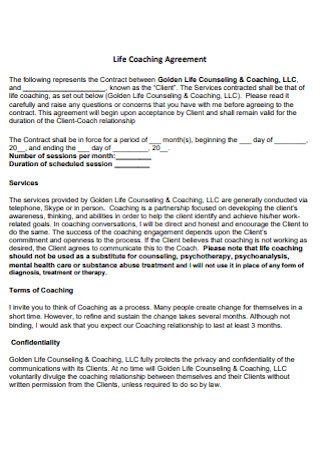
Life Coaching Agreement
download now -
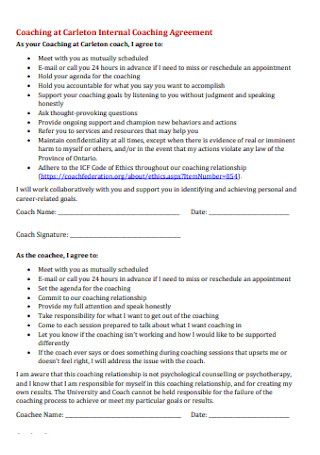
Internal Coaching Agreement
download now -
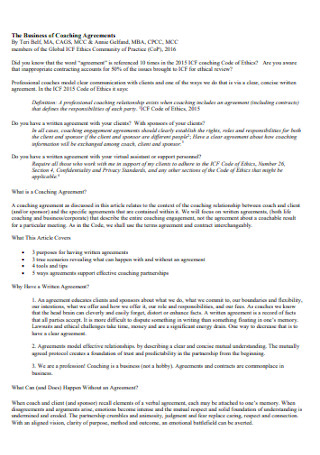
Business of Coaching Agreements
download now -
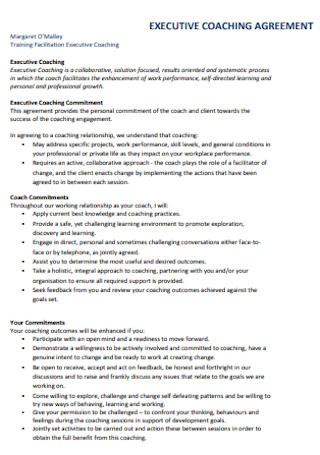
Excutive Coaching Agreement
download now -
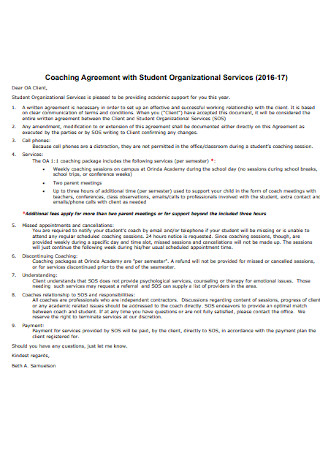
Coaching Agreement with Student Organizational
download now -
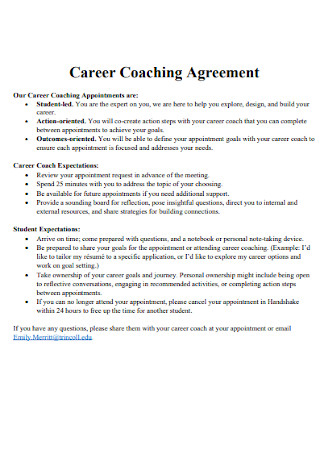
Career Coaching Agreement
download now -
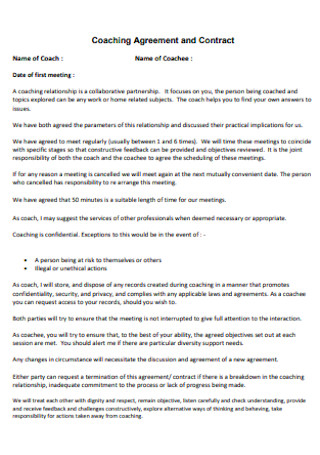
Sample Coaching Agreement and Contract
download now -
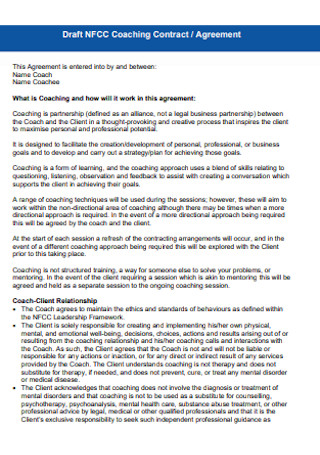
Coaching Contract and Agreement Template
download now -
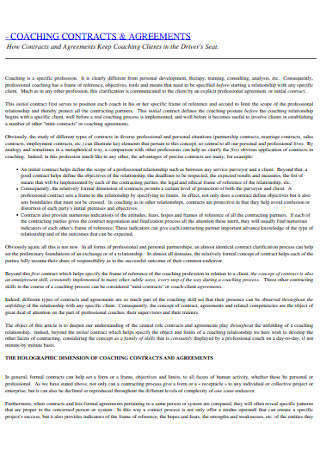
Basic Coaching Contract and Agreement
download now -
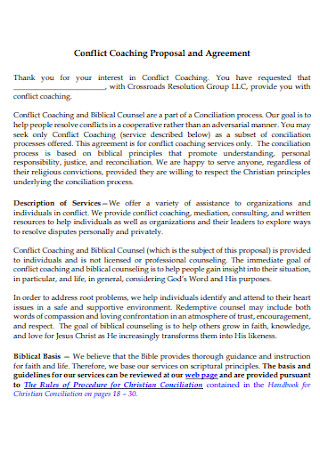
Coaching Proposal Agreement
download now -

Simple Coaching Agreement
download now -
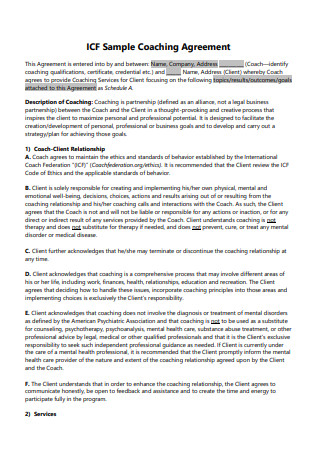
Standard Coaching Agreement
download now -
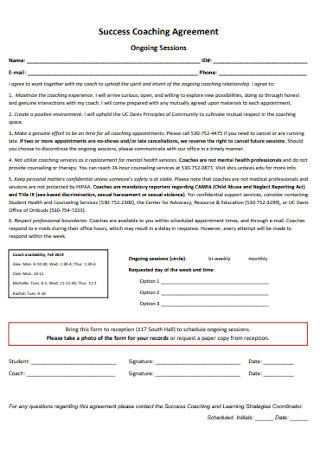
Success Coaching Agreement
download now -
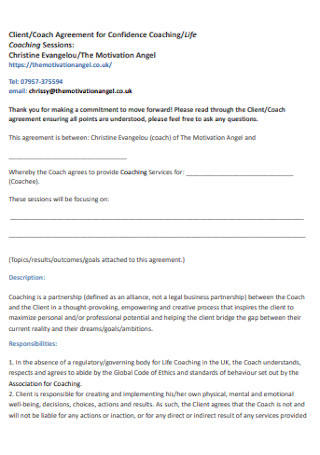
Coach Agreement for Confidence Coaching
download now -
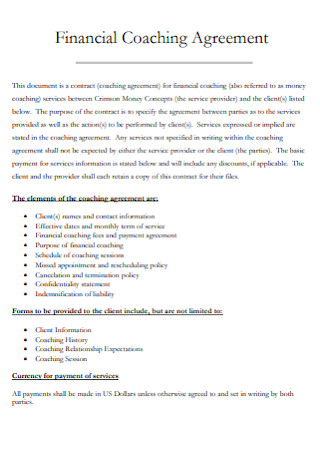
Financial Coaching Agreement
download now -
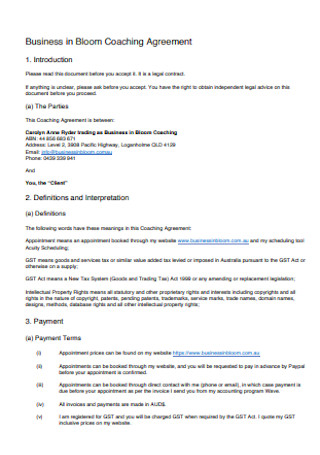
Business in Bloom Coaching Agreement
download now -
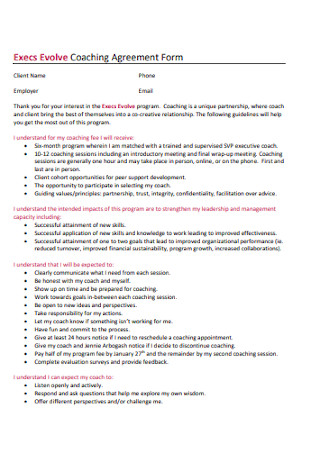
Coaching Agreement Form
download now -
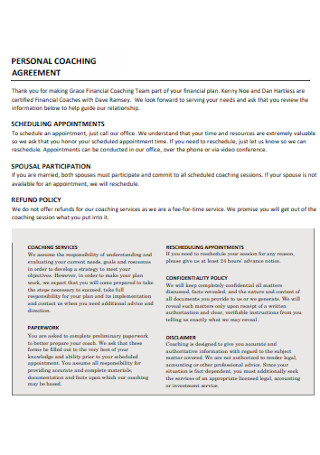
Personal Coaching Agreement
download now -
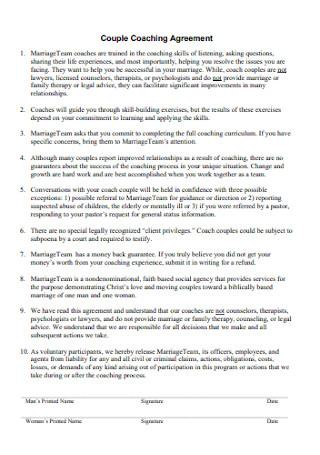
Couple Coaching Agreement
download now -
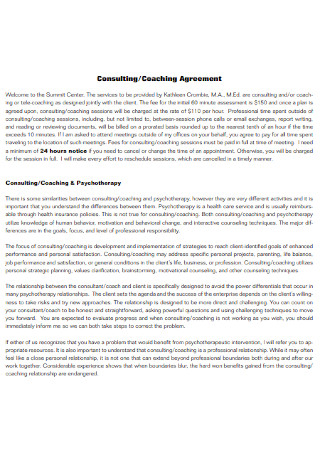
Consulting and Coaching Agreement
download now -
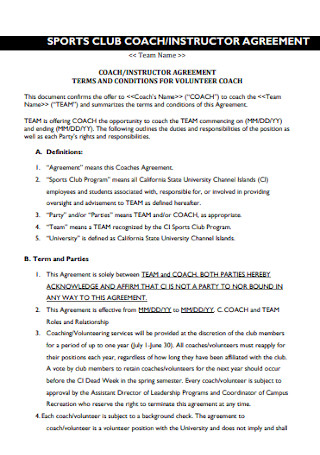
Club Coach Instructor Contract
download now -
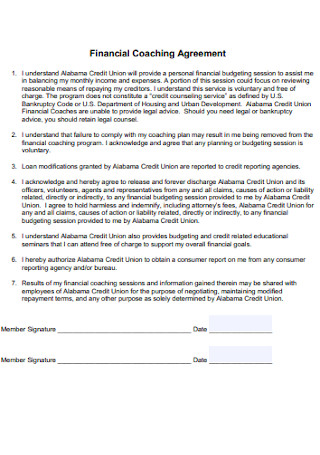
Financial Coaching Agreement
download now -
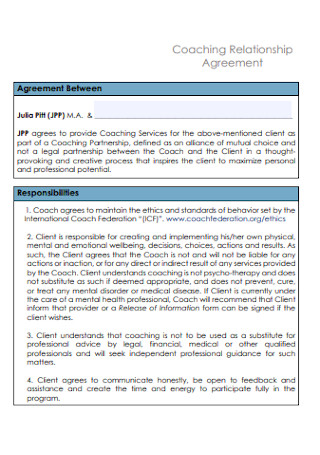
Coaching Relationship Agreement
download now -
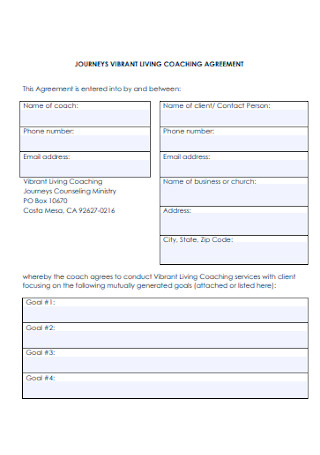
Journey Living Coaching Agreement
download now -
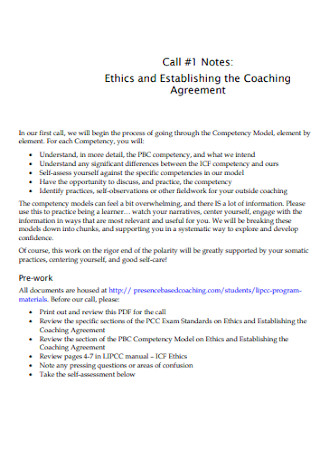
Ethics and Establishing the Coaching Agreement
download now -
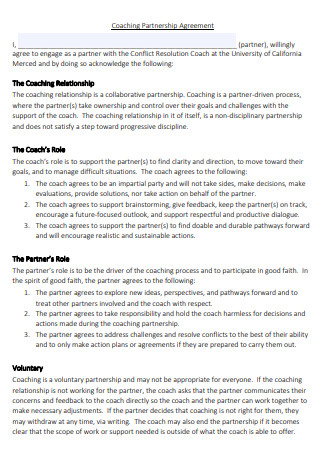
Coaching Partnership Agreement
download now -
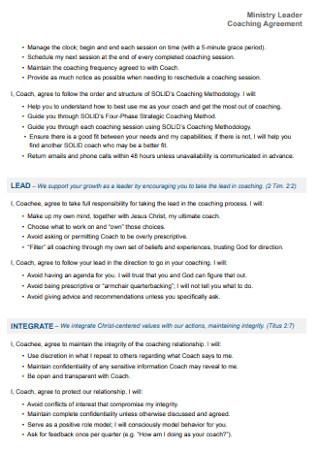
Ministry Leader Coaching Agreement
download now -
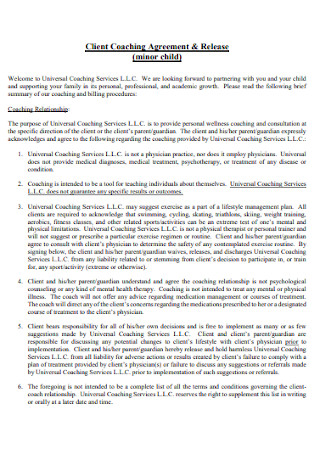
Client Coaching Agreement
download now -
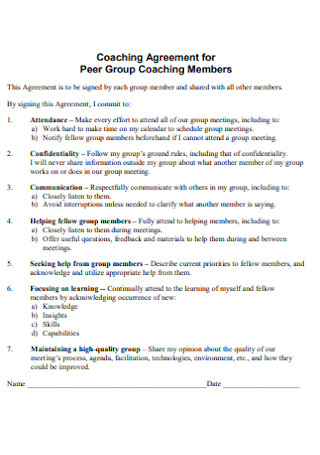
Coaching Agreement for Peer Group Members
download now -
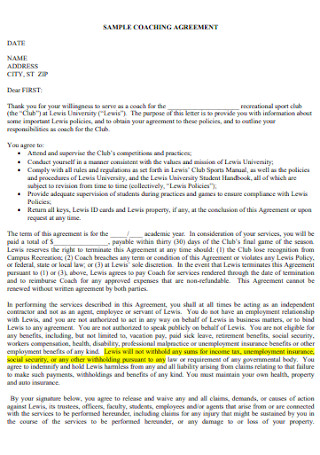
Sample Coaching Contract Example
download now -
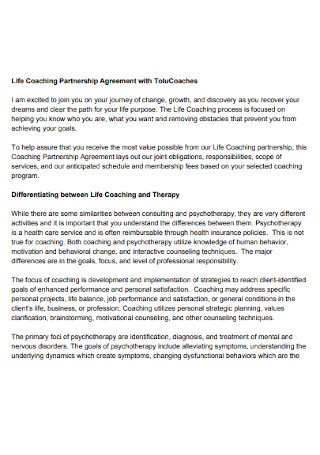
Life Coaching Partnership Agreement
download now -
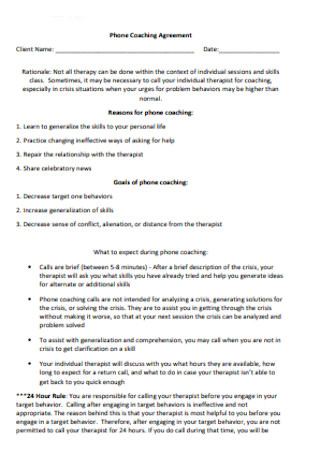
Phone Coaching Agreement
download now -
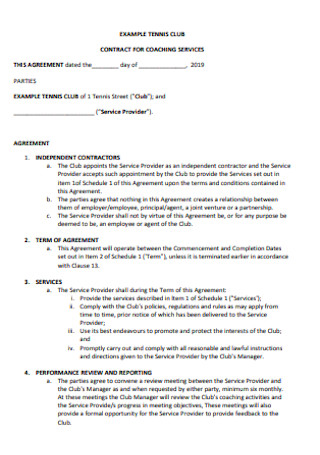
Contract for Coaching Services
download now -
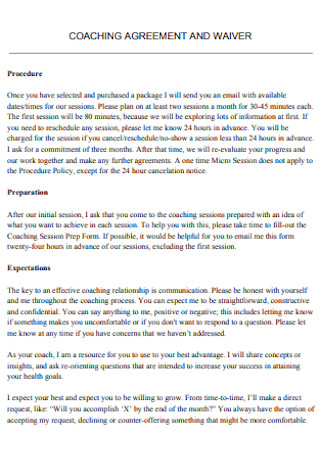
Coaching Agreement and Waiver Template
download now -
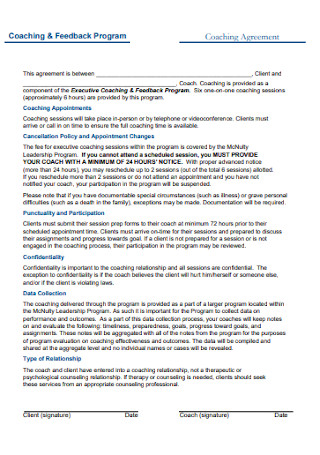
Program Coaching Agreement
download now -
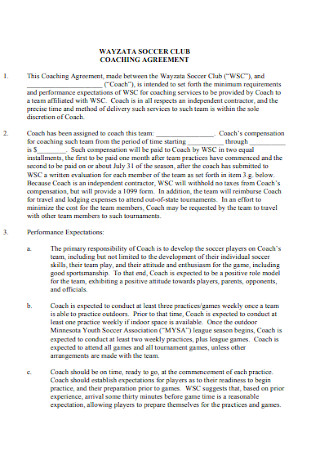
Sample Club Coaching Contract
download now -
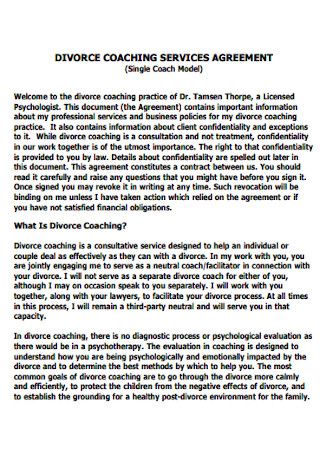
Divorce Coaching Service Agreement
download now -
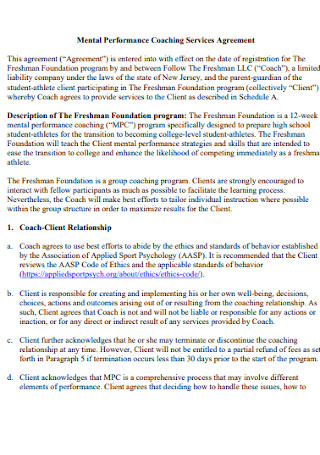
Mental Performance Coaching Services Agreement
download now -
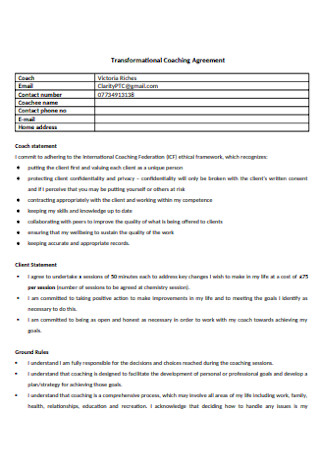
Transformational Coaching Agreement
download now -
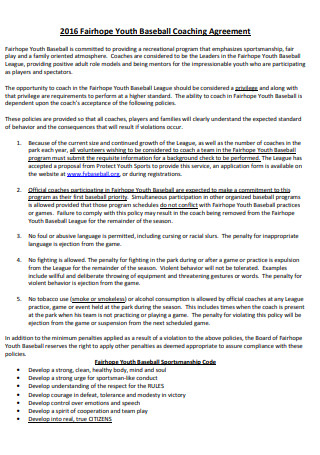
Youth Baseball Coaching Agreement
download now -
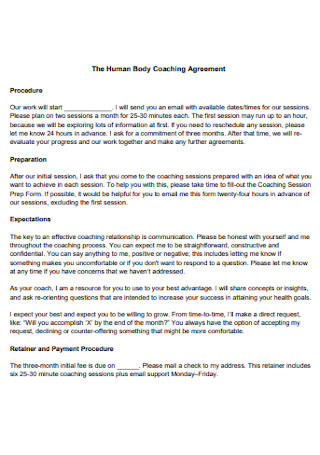
Human Body Coaching Agreement
download now -
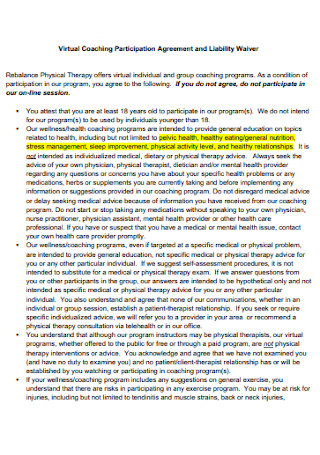
Virtual Coaching Participation Agreement
download now -
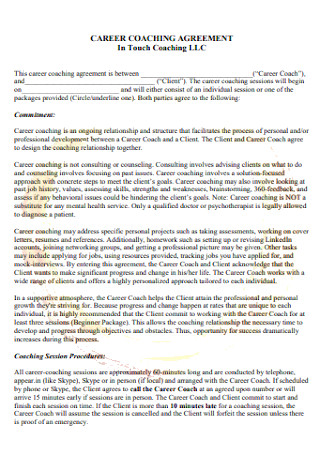
Sample Career Coaching Agreement
download now -
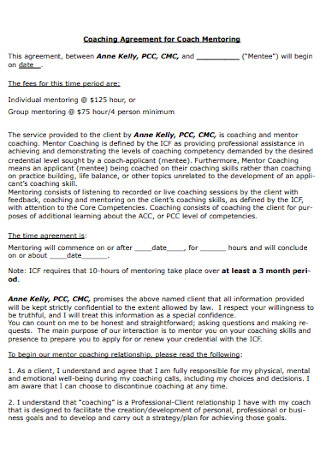
Coaching Agreement for Coach Mentoring
download now -
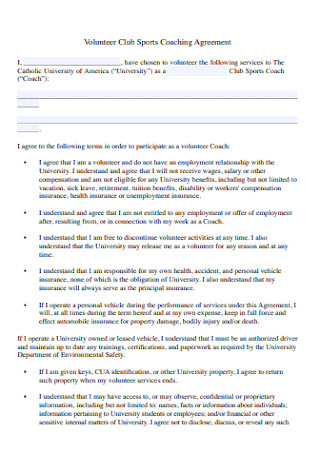
Volunteer Club Sports Coaching Agreement
download now -
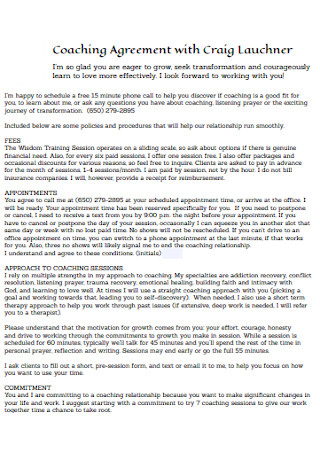
Coaching Agreement with Craig Lauchner
download now -
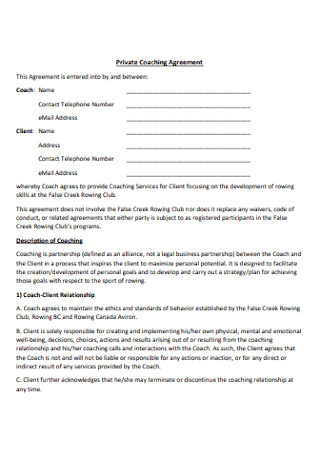
Private Coaching Agreement
download now -
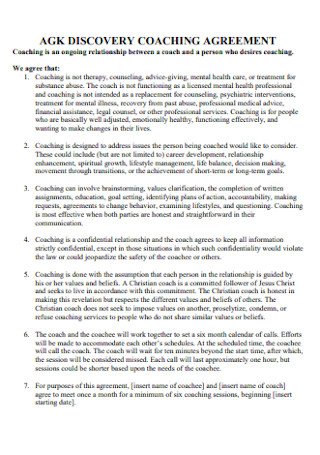
Discovery Coaching Agreement
download now -
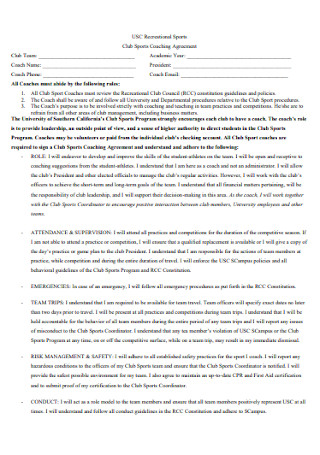
Club Sports Coaching Agreement
download now
FREE Coaching Agreement s to Download
50+ Sample Coaching Agreements
What Is a Coaching Agreement?
Different Types of Coaches
Components of a Coaching Agreement
How to Create a Coaching Agreement
FAQs
What are the main components of a coaching agreement?
What is a life coaching agreement?
How do you conclude a coaching contract?
What Is a Coaching Agreement?
A coaching agreement is a written contract made between a client and a coach. The client may enlist the help of a coach for different reasons, but mainly to seek improvement in certain areas of a client’s life. The agreement outlines the nature of the coaching relationship and its various terms and conditions.
According to LinkedIn, the size of the coaching industry is estimated to be $15 billion, as of 2019. Its market value in the United States alone is worth $7.5 billion. Of the estimated 5.8 million coaches worldwide, 42% operate in the US.
Different Types of Coaches
We’re all familiar with the athletic coach who trains school children in Little League Baseball, the neighborhood soccer team, or the varsity swim team. There’s also the stereotypical basketball coach who likes to scream at his team for playing poor defense during a game. All these are examples of athletic coaches. However, there are also other types of coaches that help groups and individuals alike; these coaches develop and improve areas other than athletic ability and training.
Components of a Coaching Agreement
A coaching agreement can contain several things, depending on the nature of the coaching relationship. The following are common elements found in a standard coaching agreement:
How to Create a Coaching Agreement
Like any basic contract, make sure you prepare the necessary information. Once you have the details ready, organize your information by following the steps below:
Step 1: Introduce the Parties
The first step is naming the individuals who are entering into an agreement. Be sure to note down the complete names for both the coach and the client. You can include their address, email and contact numbers, and other basic information.
Step 2: Define the Relationship
As a client, make sure you know what type of coaching or mentoring you are looking for. What is the purpose of the coaching? Why do you even need it? For both the client and coach, it’s important to state the nature of the relationship. Clearly indicate the responsibilities and obligations that each party is expected to fulfill. What are the coach’s functions and rules of engagement? It’s the client’s responsibility to also perform what is needed of him or her. To get desired results, a coaching relationship should not be one-dimensional, but a team effort.
Step 3: Terms and Conditions
Specify the terms and conditions of payment, the session procedures, duration of sessions, rules on cancelling sessions, etc. Indicate if the sessions are weekly or monthly, and what payment scheme is to be followed. Some coaches prefer to be paid at the end of every session. While others accept a monthly payment schedule. With regard to cancelation, a prior call to cancel the session is the usual practice. It’s standard protocol for a client to inform the coach of any change in schedule or unforeseen event. The same would also apply for the coach who, for whatever reason, may not be available for a scheduled session. All these potential scenarios should be anticipated and duly documented in the written agreement.
Step 4: Commitment and Signature
After settling all the terms and conditions, provide a disclaimer statement or declaration that reaffirms the mutual agreement made between coach and client. Like any contract, a voluntary and willing acceptance needs to be proven and explicitly written down. Conclude your contract by providing signature lines for each party to affix their name and signature.
FAQs
What are the main components of a coaching agreement?
According to Performance Coach University, the basic components of a coaching agreement include an introduction, disclaimer section, payment and refund policies, client responsibility, liability and confidentiality, and a termination clause.
What is a life coaching agreement?
A life coaching agreement is a contract agreement made between two mutual and consenting parties. The parties are the client and life coach. A client enlists the help of a life coach normally to address personal issues that involve self-discovery and self-improvement.
How do you conclude a coaching contract?
A coaching contract typically ends with a general acceptance or declarative statement that reinforces the commitment of each party. Oftentimes, a termination clause or disclaimer is also stated towards the end of a contract.
Coaches can serve as role models, especially for younger individuals. They are often respected and admired for both their expertise and dedication. But knowing where to draw the line between healthy and unhealthy coaching relations is paramount. Coaching agreements help clear the air and manage both parties’ expectations. Download a sample coaching agreement today!
